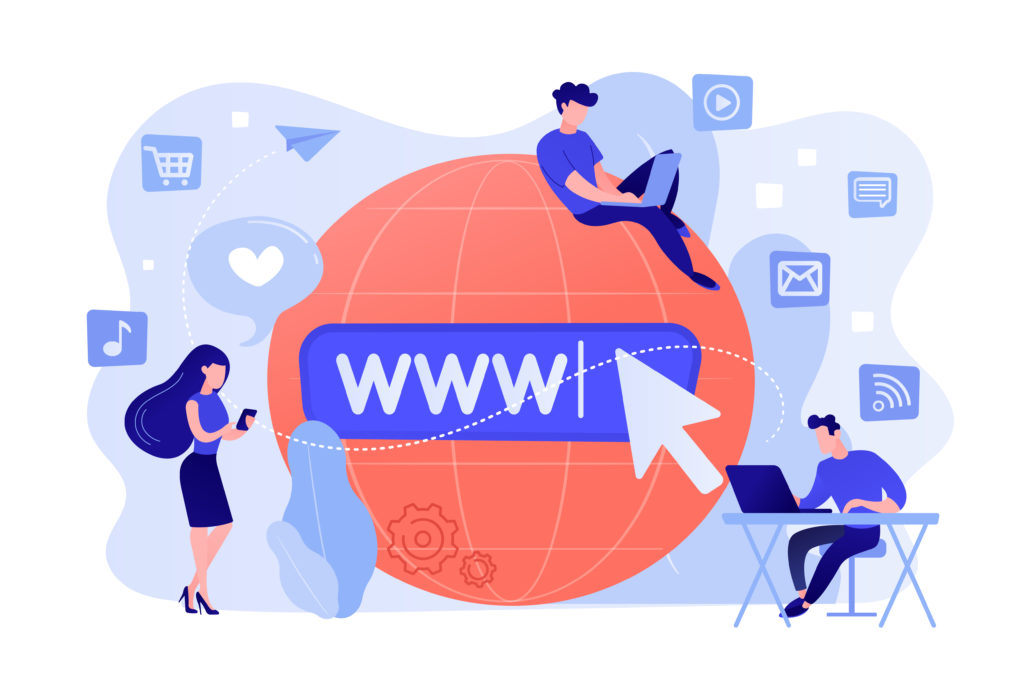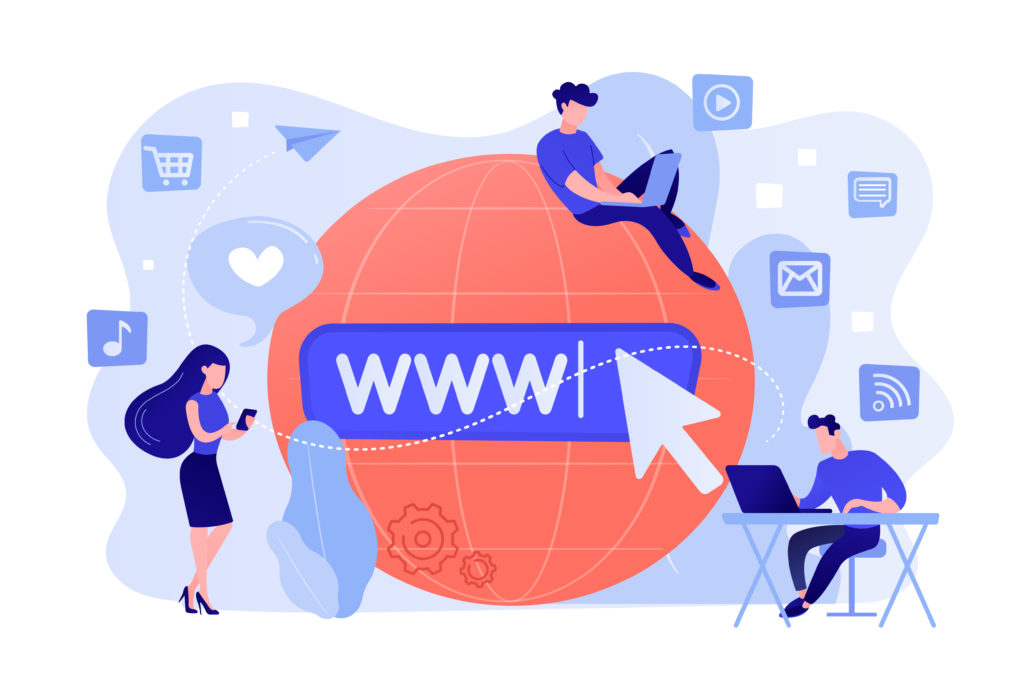Backlinks, also known as inbound links, are hyperlinks on other websites that point to your website.
According to MOZ, a leading SEO software company, backlinks are one of the most important factors in SEO and search engines like Google use them as a way to determine the popularity and authority of a website.
In addition to that, E.A.T (Expertise, authority, trust) can be improved with the help of backlinks. Backlinks can not only increase traffic to a website but also indicate to search engines that the website is reputable and useful to users.
Types of Backlinks
When it comes to backlinks, there are two primary types: dofollow and nofollow links.
Do Follow Links
A dofollow link is a hyperlink that allows search engine crawlers to follow the link and pass on “link juice” to the linked website. Essentially, this means that a dofollow link is a vote of confidence from one website to another, indicating that the linked website is trustworthy and valuable.

No Follow Links
On the other hand, a nofollow link is a hyperlink that includes a rel=”nofollow” attribute, which tells search engines not to follow the link and not to pass on any “link juice” to the linked website.
Nofollow links are often used for paid links, user-generated content (such as blog comments), or links to potentially untrustworthy websites.
It’s important to note that while nofollow links don’t pass on link juice, they can still be valuable for driving traffic to your website and increasing brand visibility.
Additionally, having a natural ratio of both dofollow and nofollow links can indicate to search engines that your website’s backlink profile is diverse and not manipulated.
What is the optimal proportion of dofollow links to nofollow links?
As a general rule of thumb, it’s recommended to aim for a ratio of around 70-80% dofollow links and 20-30% nofollow links.
This ratio can help to indicate to search engines that your website is trustworthy and valuable, while also avoiding any red flags that could potentially harm your SEO efforts.
Paid link building
Paid link building is a controversial tactic that involves paying for links on other websites to improve your website’s search engine rankings.
There are various examples of paid link building, including the purchase of links from link farms, where websites are created solely to provide links to other sites.
Another example is paying for sponsored posts or advertorials that include links to the website being promoted.
Some businesses also pay for links on directories or social bookmarking sites that are designed to host links to other websites.

Natural Link-Building Strategies
One of the most effective natural link-building strategies is to create high-quality content that is relevant and valuable to your target audience.
This can include blog posts, videos, infographics, and other types of content that offer valuable information, insights, and solutions to your audience’s needs.
Another natural link-building strategy is to build relationships with other websites in your digital marketing industry.
For example, this could be in the form of guest posting on other websites, collaborating on content creation, or engaging with influencers and thought leaders in your industry.
By building these relationships, you can establish your authority and credibility within your industry and earn high-quality backlinks in the process.
Domain Authority (DA) and Domain Rating (DR)
When looking for high-quality backlinks, it’s crucial to consider the Domain Authority (DA) and Domain Rating (DR) of a website.
Some examples of high DA and DR sites include popular news websites like CNN, BBC, and The New York Times, as well as social media platforms such as Facebook, Twitter, and Instagram. These websites have a high level of authority and trust with search engines, making them ideal for obtaining valuable backlinks.

Importance of Relevant and Quality Backlinks
Consider the placement of the link on the website you’re purchasing it from and whether it’s relevant to the site.
Will readers of the linking website be inclined to visit your resource when they see the link?
Backlinks can help improve your website’s visibility and drive traffic, but it’s important to ensure that the links are of high quality and relevant.
At ThaiSEOlinks.com, we offer a range of services related to link building services, including Thai outreach links . Our Thai outreach links involve reaching out to relevant websites in your niche and securing backlinks to your website through guest posts, mentions, or other means.
Note: Engaging in low-quality or toxic link-building practices can harm your SEO efforts and result in penalties from search engines. At ThaiSEOlinks.com, we prioritize quality over quantity and work to build high-quality, relevant backlinks for your business.
What SEO tools can be employed to identify relevant websites?
To identify which websites are suitable, you can use various SEO tools such as Ahrefs, Moz, and SEMrush. These tools can help you analyze the domain authority, traffic, and backlink profile of potential linking websites.
Additionally, you can search for websites in your niche or industry and evaluate their content and audience to determine if they are a good fit for your backlink strategy.
Nevertheless, it is crucial to keep in mind that backlinks are not the sole factor for ranking.
Before discussing whether purchasing a backlink is worthwhile, let’s first examine the advantages and disadvantages.
Pros of Buying Backlinks:
- Saves Time: One of the biggest advantages of buying backlinks is that it saves time. Instead of spending countless hours trying to build backlinks manually, you can purchase them and focus on other aspects of your business.
- Faster Results: Buying backlinks can also lead to faster results. When you purchase backlinks from a reputable source, you can see an improvement in your search engine rankings within a few weeks.
- Access to High-Quality Backlinks: Purchasing backlinks from a reputable provider can give you access to high-quality backlinks that you might not be able to acquire otherwise. These backlinks can help you establish your website as an authority in your niche.
- Cost-Effective: While buying backlinks can be expensive, it can also be cost-effective in the long run. By improving your search engine rankings, you can drive more organic traffic to your website, which can lead to more sales and revenue.
Cons of Buying Backlinks:
Check if the website you plan to get backlinks from is legitimate and not a part of a PBN (Private Blog Network). Although some PBNs may have organic traffic, low-quality websites are not ideal for your backlink profile.
Avoid using exact match anchor texts in every backlink. Instead, use a variety of links in your link-building campaign, including exact matches and generic links. A natural link profile is crucial whether you are buying or creating your backlinks for SEO.
It’s also important to ensure that the website you’re linking from doesn’t have thin content with an excessive amount of outbound links. Relevant and high-quality content is necessary to help you rank better.
Stay away from unnatural link placements and only use contextual links. A professional link-building service should only provide high-quality backlinks from authoritative sites.
Avoid backlinks coming from gambling sites, even if the site has authority and traffic. While an authoritative website can be a great source of outbound links, it needs to be relevant to your niche/topic.
Before hiring a backlink-building service, check their link-building strategy and whether or not they are practising “spammy” habits. Otherwise, this could lead to some dire consequences for your business such as:
- Risk of Penalties: If you purchase low-quality or spammy backlinks, you could face a penalty that could negatively impact your search engine rankings.
- Quality Concerns: When you buy backlinks, you’re relying on the provider to deliver high-quality links. Poor quality links on your website can damage its reputation, diminish its authority and reduce its E.A.T score.

Ethical Concerns
The ethical concept in question when it comes to buying backlinks is the practice of manipulating search engine rankings.
Search engines like Google rely on complex algorithms to determine the relevance and authority of web pages, and the number and quality of links pointing to a site is a key factor in that determination.
Buying backlinks, therefore, is often seen as a way of artificially inflating a site’s authority and ranking, rather than earning that ranking through legitimate means like creating high-quality content and building a strong online presence.
Many in the SEO industry argue that buying backlinks is not only unethical but also ineffective, as search engines are becoming increasingly sophisticated at detecting and penalizing sites that engage in such practices.
However, some argue that the practice of buying and selling links is a legitimate business transaction and that as long as the links are of high quality and relevant to the content of the site they are pointing to, there is nothing inherently unethical about it.

Key takeaways
Buying backlinks can be a tempting shortcut to improving your website’s search engine rankings, but it’s important to consider the pros and cons before making a decision. If you do decide to buy backlinks, make sure to purchase them from a reputable provider and focus on acquiring high-quality links that can positively impact your website’s authority and reputation.
To ensure the success and longevity of your website, it’s crucial to select a reputable provider like ours which follows white hat tactics and avoids those who engage in black-hat SEO. Engaging in black hat techniques can result in penalties and even permanent removal from search engine results pages.
Ultimately, it’s important to weigh the benefits and risks of buying backlinks and consider implementing a long-term SEO strategy that centres around creating valuable content and building relationships with other relevant websites in your industry.
Still indecisive if buying backlinks is the right option for your business?
Start by reading this article to help you :
Should You Buy Backlinks in 2023? We Spent $1 Million to Find Out
